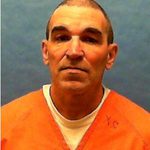
The Florida Supreme Court has overturned the death sentence imposed on Eric Kurt Patrick (pictured) and ordered the lower court to conduct a hearing on the failure of Patrick’s lawyer to adequately question a juror who admitted his belief that gay people are “morally depraved” might affect his judgment of guilt or innocence. Patrick was convicted of the 2005 murder of Steven Schumacher, a gay man who had brought Patrick home after meeting him in a park, and was sentenced to death after a bare 7 – 5 majority of jurors voted to recommend the death penalty. The court on June 14, 2018, reversed Patrick’s death sentence based upon its 2016 decision in Hurst v. State, which declared that death sentences based upon a non-unanimous jury recommendation for death violated the state and federal constitutions. The appeals court directed the trial court to conduct an evidentiary hearing to determine whether Patrick’s lawyer’s handling of jury selection was ineffective. During jury selection, one juror admitted he “would have a bias if [he] knew the perpetrator was homosexual.” When asked about his ability to evaluate guilt based only the evidence proven beyond a reasonable doubt, he said, “Put it this way, if I felt the person was a homosexual, I personally believe that person is morally depraved enough that he might lie, might steal, might kill.” The juror then answered “yes” when asked if this bias might affect his deliberations. Patrick, who does not identify as gay, was homeless and acknowledged that he had engaged in sexual activity with other men to support himself. On the night of the murder, the men were in bed together after Patrick had given Schumacher a massage, when Schumacher attempted to initiate anal sex and Patrick “cut loose on” the victim, beating him to death. Patrick’s appeal lawyers argued that defense counsel should have struck the juror because of his clear bias; prosecutors argued that Schumacher, not Patrick, was gay and that Patrick’s trial lawyer accepted the juror for strategic reasons. The court wrote that “[a]pplying this evidence to the juror’s voir dire answers establishes that, by the juror’s own acknowledgement on the record, he was predisposed to believe that Patrick is morally depraved enough to have committed the charged offenses. Although Patrick does not identify as homosexual and indicated in his confession that his sexual activity with men was for material support rather than personal fulfillment,” the opinion said, “these points do not eliminate the bias that this juror said he would feel based on the evidence that trial counsel and the trial court knew the jury would hear during trial.” However, the court said it did not have enough evidence to decide the issue. Remanding the case for an evidentiary hearing, it wrote, “[o]n this record, we can neither ignore the possibility that counsel’s failure to challenge this juror was strategic nor conclude that it was.”
(Jim Saunders, Supreme Court targets juror anti-gay views in death case, News Service of Florida, June 14, 2018; Florida: Death row inmate wins hearing due to juror comments, The Associated Press, June 14, 2018.) Read the Florida Supreme Court’s decision here. See Arbitrariness and Florida.
Arbitrariness
Nov 05, 2024

DPI Report Provides Valuable Context for 2024 Elections
Arbitrariness
Aug 06, 2024

